Commercial Driver Medication Safety Checker
Check Your Medication Safety
Select the medication you're taking or know about to see if it's safe for commercial driving.
What Medications Can Get a Commercial Driver Pulled Off the Road?
If you drive a commercial motor vehicle, your prescription meds aren’t just a personal health matter-they’re a safety issue under federal law. The FMCSA doesn’t care if your doctor approved it, if it’s legal in your state, or if you’ve taken it for years. If it can make you drowsy, dizzy, or slow to react, it’s probably banned. And you’ll find out the hard way during your DOT physical or a roadside inspection.
Here’s the reality: 4.2% of large truck crashes in 2020 involved drivers who tested positive for disqualifying substances. That’s over 1,200 deaths. The rules exist because one wrong pill can turn a routine drive into a tragedy. You’re not just risking your job-you’re risking lives.
The Big Three: Medications That Are Always Prohibited
The FMCSA doesn’t mess around with these. Even if you have a valid prescription, these are outright banned for CDL holders:
- Marijuana - Even if it’s legal in your state for medical or recreational use, it’s still a Schedule I controlled substance under federal law. A positive test = immediate disqualification.
- Amphetamines - This includes Adderall, Vyvanse, and other stimulants used for ADHD. Yes, even if your doctor says you need them. The DOT doesn’t recognize ADHD as a condition that overrides safety standards for commercial drivers.
- Narcotics - Codeine, oxycodone, hydrocodone, morphine, and any opioid-based painkiller. These are Schedule II drugs, and the FMCSA allows zero tolerance, even for cancer patients or those recovering from surgery.
These aren’t suggestions. They’re legal prohibitions. And they’re enforced through the Drug and Alcohol Clearinghouse, a real-time database that tracks violations. If you test positive, your employer gets notified. Your license can be suspended. And you won’t be able to drive again until you complete the return-to-duty process.
What About Prescription Drugs That Aren’t on the Banned List?
Just because a medication isn’t on the prohibited list doesn’t mean it’s safe. The FMCSA’s rule is simple: if it impairs your ability to safely operate a CMV, it’s not allowed. That means even legal prescriptions can get you disqualified if they cause side effects like:
- Drowsiness or fatigue
- Blurred vision
- Slowed reaction time
- Dizziness or lightheadedness
- Confusion or poor judgment
That’s why your DOT medical examiner will ask you to list every medication you take-prescription, over-the-counter, or even herbal. That includes:
- Antihistamines like Benadryl (can cause drowsiness)
- Cough syrups with dextromethorphan (can cause dizziness)
- Nasal decongestants with pseudoephedrine (can cause jitteriness or high blood pressure)
- Antidepressants like SSRIs (may cause drowsiness or delayed reaction time)
- Benzodiazepines like Xanax or Valium (even if prescribed for anxiety)
Dr. Gary Solomon, a certified Medical Examiner with over 20 years of experience, says nearly 35% of drivers he examines are on medications that need extra review. Antidepressants are the most common. But here’s the catch: the examiner doesn’t decide alone. They rely on your doctor’s input. That’s why you need a Medication Action Plan.
Your Medication Action Plan: What It Is and Why You Need It
A Medication Action Plan isn’t paperwork for the sake of paperwork. It’s your lifeline if you’re on a medication that’s borderline safe. Here’s what it needs:
- Your full list of medications, including dosages and times taken
- A signed note from your prescribing doctor stating the medication is safe for commercial driving
- Documentation of how the medication affects you personally - not just what the label says
- Results from a self-assessment tool like the Driving Impairment Checklist
For example, if you take an SSRI for depression, your doctor might write: “Patient has been on sertraline 50mg daily for 18 months. No reports of drowsiness, dizziness, or impaired cognition. Patient drives 8 hours daily without incident. Medication does not impair ability to operate CMV.”
This isn’t optional. Without it, your medical examiner has no choice but to disqualify you. And if you’re caught driving without one, you’re in violation of federal law.
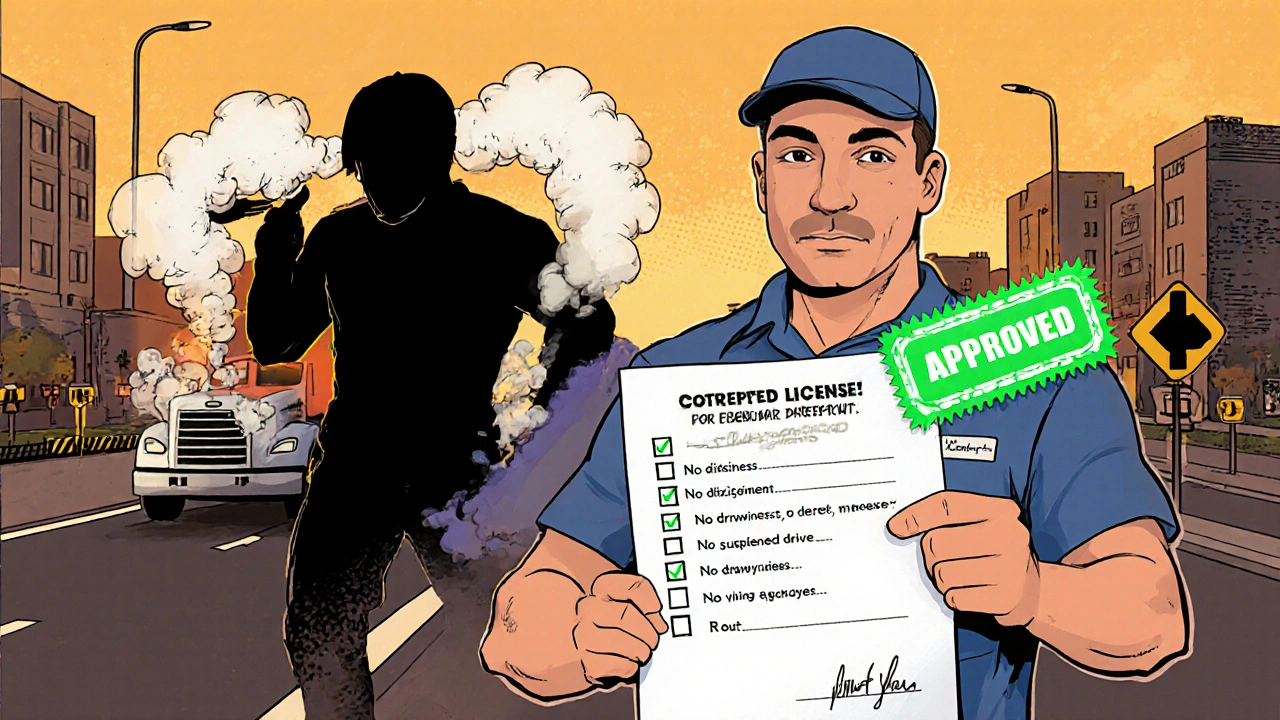
Why Adderall Is a Deal-Breaker - Even If It Helps You Focus
Many drivers with ADHD swear by Adderall or Vyvanse. They say it helps them stay alert on long hauls. But here’s the truth: the FMCSA doesn’t care. These are amphetamines. Period. No exceptions.
A 2023 Reddit thread with 287 truckers who lost their CDLs after testing positive for amphetamines proves this isn’t rare. Some tried to fight it. Some appealed. Most got nowhere. The DOT doesn’t make exceptions for performance enhancement, even if it’s medically prescribed.
But there’s hope. Drivers who switched to non-stimulant options like Strattera (atomoxetine) have successfully regained their licenses. Strattera doesn’t trigger positive drug tests, and studies show it’s just as effective for focus without the crash or impairment risks. Talk to your doctor. It’s not about giving up your treatment - it’s about finding a compliant alternative.
The Cost of Non-Compliance: Fines, Suspensions, and Lost Income
Getting caught with a banned medication isn’t a slap on the wrist. Here’s what’s at stake:
- Immediate suspension of your CDL
- Minimum $1,250 fine per violation (as of April 2024)
- Employer penalties up to $14,200 per safety audit failure
- Loss of job - many carriers have zero-tolerance policies
- Time-consuming return-to-duty process: evaluation, education, follow-up testing
And it’s not just you. Your carrier gets fined too. That’s why trucking companies now spend over $217 million a year on compliance tools - electronic medication tracking, automated DOT physical reminders, and training programs. In 2024, 67% of carriers use digital systems to monitor meds. If you’re still using paper logs, you’re already behind.
What If You Need a Banned Medication? There’s a Path - But It’s Hard
If you’re on a disqualifying drug - say, opioids for chronic pain - you’re not out of options. You can apply for a Skill Performance Evaluation (SPE) certificate. This lets you keep driving if you can prove you can operate safely despite your condition.
The process:
- Get a letter from your doctor explaining your condition and why you need the medication
- Undergo a functional assessment with a certified evaluator
- Pass a road test demonstrating safe driving ability
- Receive an SPE certificate, valid for one year (renewable)
The approval rate? 68%. That means most who apply and are properly prepared succeed. But you can’t just walk in and ask. You need documentation, proof of stability, and a clear plan. The FMCSA’s 2023 SPE Report shows drivers with sleep apnea using CPAP machines have the highest success rate - 92%. Why? Because they follow protocols. You can too.
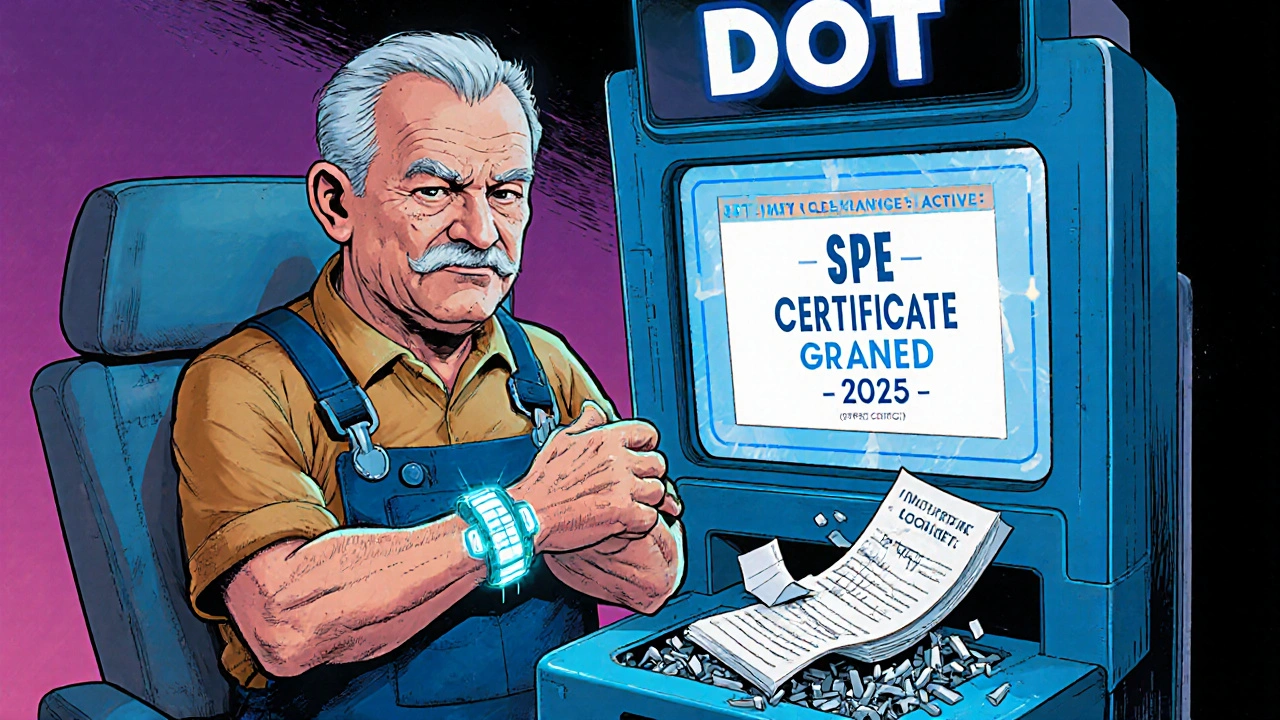
The Aging Driver Problem: Medications Are Becoming a Bigger Issue
By 2027, the industry could be short 54,000 drivers - and a big part of that is medication-related disqualifications. Drivers over 50 are more likely to be on multiple prescriptions: blood pressure meds, diabetes drugs, painkillers, sleep aids. Many of these interact or cause side effects that make driving unsafe.
And here’s the kicker: the FMCSA is moving to ban all benzodiazepines - even if prescribed - starting in 2025. Why? Because NHTSA data shows a 22% spike in crash tests positive for these drugs since 2019. These are anti-anxiety meds like Xanax and Klonopin. They’re common. They’re dangerous behind the wheel. And the rules are catching up.
For older drivers, this isn’t just about losing a license. It’s about losing independence. That’s why the industry is testing biometric wearables - devices that monitor real-time signs of impairment like pupil dilation, heart rate variability, and microsleeps. The FMCSA funded a $4.7 million pilot with Samsara and KeepTruckin. If it works, future DOT exams might include wearable data - not just urine tests.
What You Should Do Right Now
If you’re a commercial driver, here’s your action list:
- Review every medication you take - prescription, OTC, or supplement
- Check the FMCSA’s current prohibited list (updated monthly)
- Speak with your doctor - tell them you’re a CDL holder. Don’t assume they know the rules
- Ask for a Medication Action Plan - get it in writing
- Never drive under the influence of anything that makes you drowsy or slow
- Keep copies of all prescriptions and doctor’s notes in your cab
If you’re on a banned drug and can’t switch, start the SPE process now. Don’t wait until your next physical. The paperwork takes months. Your livelihood depends on it.
Final Thought: Compliance Isn’t Optional - It’s Survival
You didn’t get your CDL to risk it all on a pill. The rules are strict, but they’re not arbitrary. Every regulation exists because someone died because of a drug that shouldn’t have been taken behind the wheel. You can’t change the rules. But you can change how you follow them.
Stay compliant. Stay informed. And stay on the road.
Can I drive a commercial vehicle if I have a prescription for Adderall?
No. Adderall contains amphetamines, which are strictly prohibited for CDL holders under FMCSA regulations, regardless of medical necessity or prescription status. Even if your doctor says it helps you focus, the DOT does not make exceptions. Using Adderall while driving a commercial vehicle will result in a positive drug test, CDL suspension, and possible employer penalties. Switching to non-stimulant ADHD medications like Strattera is the only compliant option.
Are over-the-counter cold medicines allowed for commercial drivers?
Some are, but many are not. Medications containing pseudoephedrine (like Sudafed) or dextromethorphan (like Robitussin DM) can trigger false positives on drug tests and may cause drowsiness, dizziness, or jitteriness. The FMCSA requires full disclosure of all OTC drugs during DOT physicals. Always check labels and consult your medical examiner before taking any cold or allergy medicine. Safer alternatives include saline nasal sprays and non-sedating antihistamines like loratadine (Claritin).
What happens if I fail a DOT drug test because of a prescribed medication?
You’ll be immediately removed from safety-sensitive duties and entered into the Drug and Alcohol Clearinghouse. You must then complete a return-to-duty process: evaluation by a Substance Abuse Professional (SAP), successful completion of education or treatment, and a follow-up drug test with a negative result. Only then can you apply for reinstatement. Your employer must also be notified. This process can take weeks or months - and cost thousands in lost wages and fees.
Can I get a medical exemption for pain medication if I have a chronic condition?
You can’t get an exemption for opioids or other Schedule II narcotics - they’re banned outright. But you may qualify for a Skill Performance Evaluation (SPE) certificate if you can prove you can drive safely despite your condition. This requires documentation from your doctor, a functional assessment, and a road test. Approval rates are around 68%. The key is showing stability, no side effects while driving, and adherence to treatment. It’s not easy, but it’s possible.
How often do I need to renew my DOT medical certificate if I’m on medication?
The standard renewal is every 24 months. But if you’re on medication that requires monitoring - like blood pressure drugs, antidepressants, or CPAP for sleep apnea - your Medical Examiner may issue a certificate with a shorter term: 3, 6, or 12 months. This allows them to check your stability and medication response more frequently. Always follow up with your doctor and keep updated records ready for your next exam.
Do state marijuana laws override federal DOT rules for truck drivers?
No. Federal law governs commercial drivers, not state law. Even if marijuana is legal for medical or recreational use in your state, it remains a Schedule I controlled substance under federal law. The FMCSA prohibits any use of marijuana by CDL holders. A positive drug test for THC - even from a medical prescription - will result in disqualification. State legality does not protect you from federal enforcement.
Can I be fired for taking a prescribed medication that’s not on the banned list?
Yes - if your medication causes side effects that impair your driving ability, your employer can legally remove you from duty. The FMCSA allows employers to enforce stricter policies than federal minimums. Many carriers have zero-tolerance policies for any medication that causes drowsiness, even if it’s not technically banned. Always disclose all medications to your employer and get written clearance from your doctor to avoid termination.
What’s the difference between a DOT physical and a regular physical?
A DOT physical is specifically designed to assess your fitness to operate a commercial vehicle. It includes mandatory drug screening, vision and hearing tests, blood pressure checks, and a detailed review of all medications. Unlike a regular physical, the examiner must follow strict FMCSA guidelines and use standardized forms. The exam also requires you to disclose all drugs - even supplements - and can result in disqualification if safety risks are found. It’s not just a checkup - it’s a safety certification.

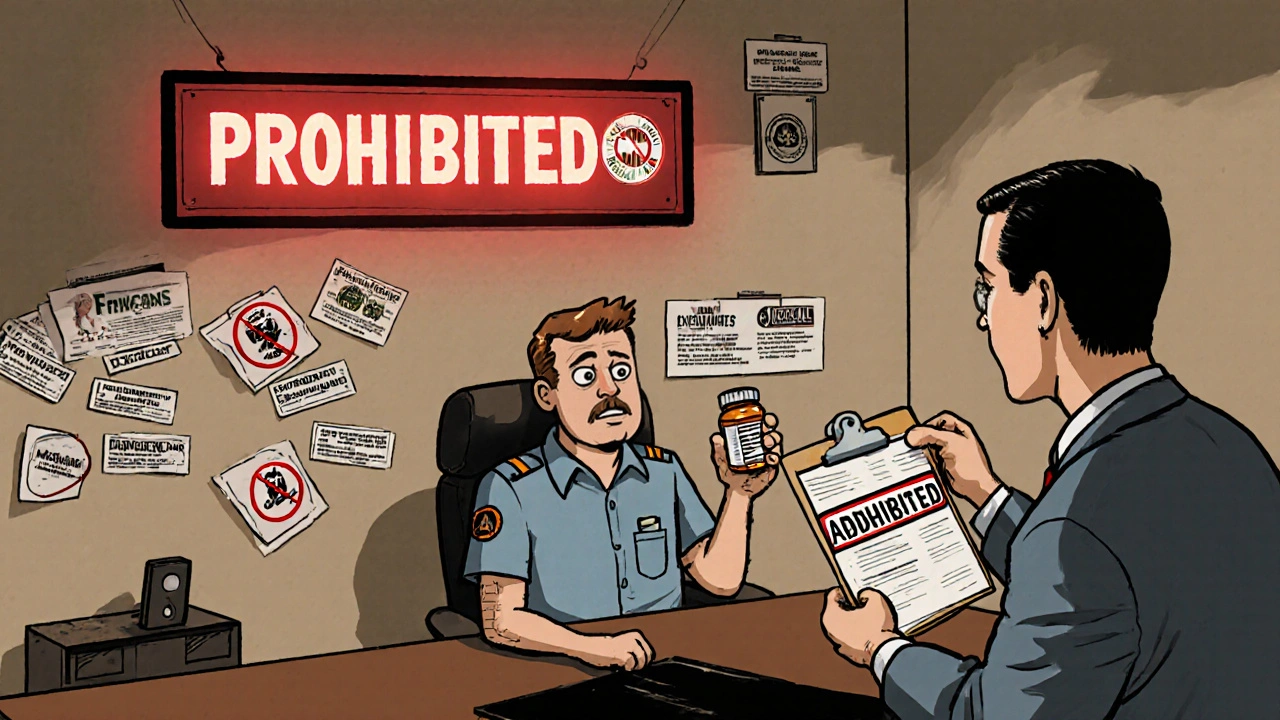

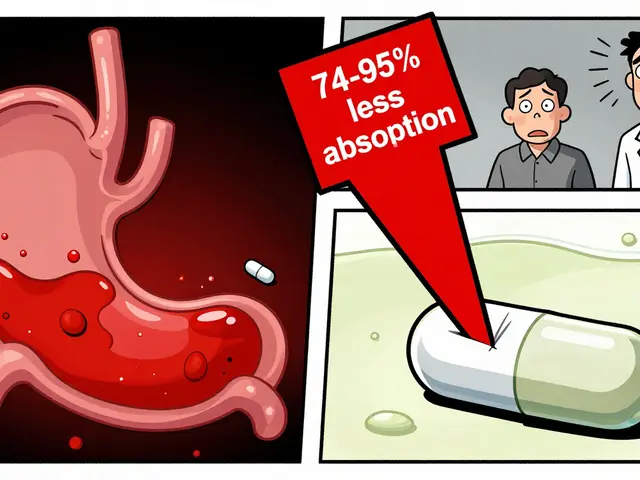
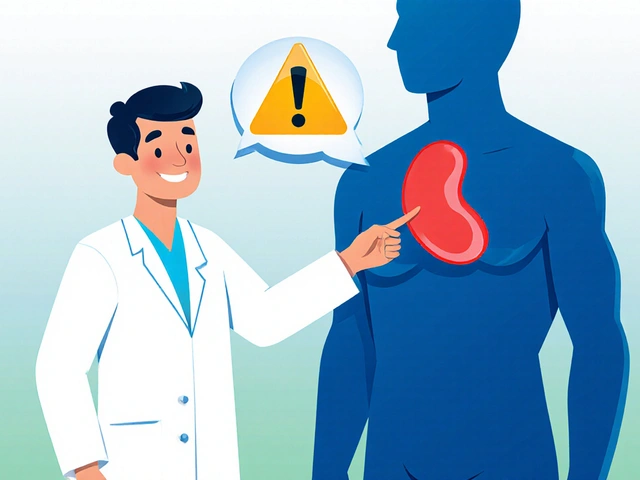
Zac Gray
Look, I get it - Adderall keeps you awake on a 12-hour haul, but the DOT ain’t here to babysit your ADHD. I’ve seen guys try to argue their way out of a positive test like it’s a college ethics class. Spoiler: it doesn’t work. I switched to Strattera last year. Took a week to adjust, but now I’m alert, focused, and my CDL’s still valid. No drama. No clearance forms. Just drive. Your doctor’s not gonna fight for you - you gotta fight for yourself.
Steve and Charlie Maidment
Yeah right. Like the government actually cares if I live or die behind the wheel. They just want to control us. You think they’re worried about safety? Nah. They’re worried about liability. If I take my pain meds and don’t crash, who are they to say I can’t drive? I’ve been hauling for 22 years. I know my body. They just want to make us all take useless tests and pay for ‘compliance programs’ so their buddies in the tech biz can cash in. It’s a racket.
Michael Petesch
It is noteworthy that the Federal Motor Carrier Safety Administration’s regulatory framework operates under the supremacy of federal law, irrespective of state-level cannabis legislation. This dichotomy between state autonomy and federal jurisdiction presents a significant legal challenge for interstate commercial operators. Moreover, the inclusion of non-prescription agents such as dextromethorphan and pseudoephedrine in the scope of scrutiny reflects a proactive, albeit controversial, interpretation of ‘impairment’ that extends beyond pharmacological classification into behavioral outcome metrics.
Richard Risemberg
Yo - if you’re still using Benadryl for allergies like it’s 2005, you’re one bad turn away from becoming a headline. I used to do it too - ‘just one pill to sleep’ - until I woke up at 3 AM on I-80 with my rig swerving like a drunk snake. That’s when I switched to Claritin. No drowsiness. No panic. No DOT nightmares. And guess what? My boss didn’t even notice the change. The best compliance is the kind you don’t have to think about. Stop risking your life for a cheap fix. Your family’s waiting at home, not at the morgue.
Andrew Montandon
Let’s be real: if you’re on Xanax, you’re already a liability - even if your doctor says ‘it’s fine.’ I’ve seen guys pop two of those like candy before a shift, then wonder why they’re getting pulled over for weaving. And don’t even get me started on the ‘I’ve been on it for years’ crowd. Yeah, so have I - and I got off it because I didn’t want to lose my license over a panic attack. You want to drive? Then you gotta be sharp. Not medicated. Not ‘adjusted.’ Sharp. And if your doc won’t help you find a legal alternative, find a new doc. Your CDL is worth more than your comfort zone.
Sam Reicks
the dot is just a front for the deep state to control truckers and make money off of drug tests they dont even do right anyway i saw a guy test clean but still got flagged because the lab mixed up his name with some guy in texas and no one cares its all rigged and the real danger is the gps trackers and the cameras watching you 24 7 not the pills
Chuck Coffer
Oh, so now we’re supposed to trust doctors? The same ones who prescribed opioids to half the country and now act shocked when people get hooked? You think your ‘Medication Action Plan’ is going to save you? Please. The examiner’s got a checklist. He doesn’t care about your ‘personal experience.’ He just needs to check the box so his insurance doesn’t get sued. You’re not special. You’re not unique. You’re just another guy with a prescription and a death wish.
Marjorie Antoniou
I’m a dispatcher for a small fleet, and I’ve watched too many drivers lose everything because they didn’t speak up. One guy hid his antidepressants because he was scared of being judged. He got pulled over, lost his job, and spent six months in depression. He didn’t need to be punished - he needed support. Talk to your doctor. Tell them you’re a driver. Ask for alternatives. Don’t wait until you’re in crisis. You’re not weak for needing help - you’re smart for asking for it.
Andrew Baggley
Hey - I was on hydrocodone after back surgery. Thought I was done. But I didn’t give up. I found a specialist who helped me get an SPE. Took 4 months. Paid $3K. Had to drive a truck with a pro evaluator watching me like a hawk. But I passed. Now I’m back on the road. It’s not easy. But it’s possible. Don’t let fear stop you. Get the paperwork. Find the right people. And don’t quit. The road’s still yours - you just gotta play by the new rules.
Frank Dahlmeyer
Let me tell you something - in the UK, they don’t have this kind of rigid black-and-white policy. We’ve got a risk-assessment model. If you’re stable, if you’re monitored, if you’re not impairing - you drive. Here, it’s like we’re treating truckers like criminals before they’ve even broken a law. The FMCSA isn’t protecting safety - it’s protecting itself from lawsuits. And meanwhile, the real problem - sleep deprivation, fatigue, 16-hour shifts - gets ignored. Fix the schedule. Fix the pay. Then maybe we can talk about pills.
Codie Wagers
The fundamental paradox of modern commercial driving regulation lies in its implicit assumption that pharmacological integrity can be universally standardized - a fallacy of reductionist bioethics. The human body is not a machine calibrated to a single algorithm; it is a dynamic, adaptive system. To impose a monolithic prohibition on amphetamines, opioids, and benzodiazepines - irrespective of dosage, duration, tolerance, or functional outcome - is not safety policy. It is ideological dogma masquerading as science. The FMCSA does not regulate impairment - it regulates compliance. And in doing so, it sacrifices nuance for control, and autonomy for administrative convenience. The road is not a test tube.